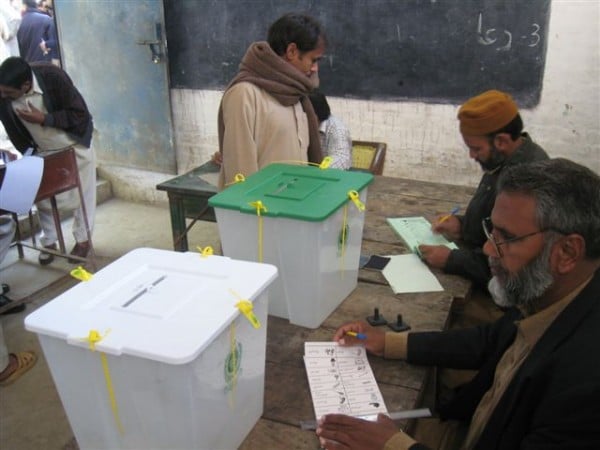
Photo Credit: boellstiftung, via Flickr
In preparation of the elections scheduled for next month (amidst talks of postponement), officers in charge of scrutinizing election nomination papers have questioned candidates on their knowledge of religion, as is required by Article 62 of the Constitution of the Islamic Republic. Under Article 62, persons seeking to contest in parliamentary elections must display adequate knowledge of Islamic teachings, practice Islam and prove that their actions have not violated Islamic injunctions. Practically, these provisions have never been applied with such subjective scrutiny or fervor. This election year, officers in charge of scrutinizing election nomination papers have questioned candidates on their knowledge of religion and demanded impromptu regurgitation of verses from the Qur’an. One very senior politician was accused of not espousing Islamic teachings because he did not have a beard. A renowned journalist had his nomination papers rejected because his articles were deemed to violate the “ideology of Pakistan.” The absurdity of the application of Article 62 has not escaped the public, to whom it is quite clear that this is some form of pre-poll rigging, screening to ensure only the politicians the “establishment” (as explained by Farahnaz Ispahani) approves are allowed to contest elections. In the days leading up to the elections, the Pakistani Taliban (known as the Tehreek-i-Taliban Pakistan or the “TTP”) have announced their intention to attack any public gatherings or political campaigns and meetings of, what are considered, the three most secular/liberal political parties: the Pakistan People’s Party (PPP – the political party of Late Benazir Bhutto and her husband Asif Ali Zardari, the current president of Pakistan), the Awami National Party (ANP), and the Mutahida Qaumi Movement (MQM). Pakistan Muslim League – Nawaz (PML-N), the party predicted to take the upcoming elections, and the Pakistan Tehreek-i-Insaaf (PTI) are safe from threats from the TTP.
Image from: tribune.com.
Since election season has started, the TTP have launched six attacks on the ANP alone, and in the most recent, killed 18 and wounded over 40. It begs the question why such religious fervor is taking a stronghold in Pakistan. Some say the AfPak war and the dubious drone attacks are to blame, allowing the Taliban political and social recognition in Pakistan. The leader of the PTI, Imran Khan, ex-cricketer turned politician, seems to be swaying a lot of educated youth in the province of Punjab on the premise of it being a new political party with a fresh, more educated (Mr. Khan is an Oxford graduate) outlook. Imran Khan’s willingness to invite the TTP to the negotiation table while they so brazenly claim lives in the name of religion, leaves an apprehension of what the TTP will be able to barter away from those talks as well as the basic premise of the political ideology of PTI, given their willingness to talk to “terrorists.” Then why are the “educated youth” supporting this manifesto? A recent study conducted by the British Council in Pakistan revealed that Pakistani youth prefered either Islamic or military rule in the country. Although the AfPak war is scheduled to end, in a manner of speaking, with the U.S. pulling out its army over the next year, the extremists in Pakistan seem to be just warming up. In an election year when the citizens should desire — and the political parties should be manifesting — a movement to change the inequitous laws garbed in a religious shroud, starting off with the blasphemy laws, we are seeing nothing of the sort. Instead the Taliban are running the show by threatening the “secular” parties, while those not threatened, watch silently for fear of their own lives . So, what will become of these much awaited elections? The outlook, if anything, is bleak.